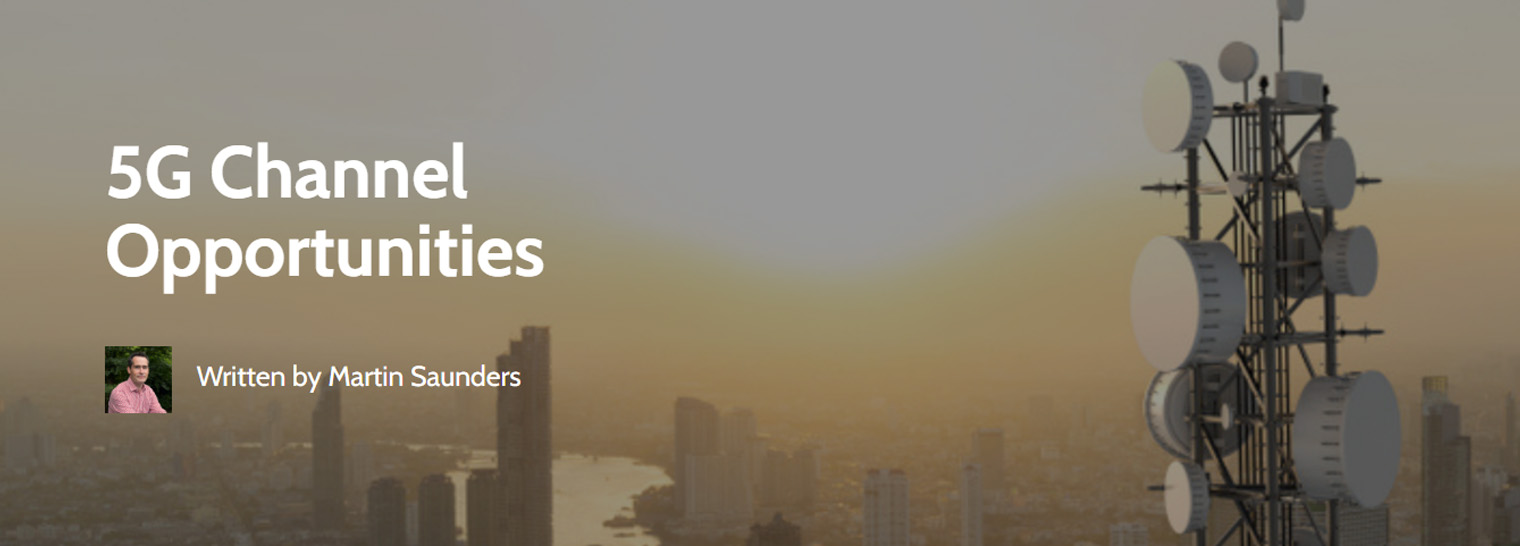Martin Saunders, Product Director at Highlight looks at the 5G opportunities for resellers and MSPs.
5G is exciting technology! It promises high speed, reliable low latency network connectivity to large parts of the UK and could be considered as a viable alternative to fixed-line connectivity when delivered well by a network operator.
The attributes of 5G make it interesting for customers that need quick-to-install connectivity. It can be installed in hours potentially to get a site online, and when the fixed line connectivity is installed can then be used as a secondary backup service. This is appealing because it uses a separate network and doesn’t share any of the fixed line network assets.
It is also useful for getting connectivity to where a fixed line isn’t possible such as temporary locations for construction sites, IoT for sensors where it may be difficult to install a copper or fixed line or simply as a replacement fixed line.
But… Although 5G is better than 4G, it still suffers from various signal strength issues. This isn’t just about the distance from the cell mast, other elements can cause interference and make the connection unreliable.
For example, the frequency used by 5G is typically high in the spectrum, within the 3.4GHz range. The higher the frequency, the less able the signal can penetrate a building. To get a reliable signal to a business, you ideally need antennas installed outside of the building. However, even if you get a good signal, the user may be using a congested mast and poor network throughput and quality may be caused by too many using the same connection.
Whilst 5G services may be appealing, the bandwidth is expensive and if not managed effectively, can result in bill shock. If the primary connection fails, and your customer sits on 4G or 5G for any length of time, the usage costs will be high.
In terms of the role for the channel, they can solve the installation and antenna issue by installing the equipment properly. And they can solve signal strength and bill shock issues by offering a proper managed service with full reporting and insights into signal strength and usage.
When to get involved in 5G services
One of the main challenges is that there are few devices on the market that support 5G. It is becoming more common for mobile phones, but scarce on the router side that uses cellular connections for fixed location connectivity. Companies like Cisco are working on 5G routers, but the costs are currently high.
It’s worth providers dipping a toe in the water now and gaining experience since many of the issues with 5G are the same as those associated with 4G. The channel can prove their 4G expertise and then move to 5G when more products are on the market and the costs are competitive. With 4G and 5G in their portfolios now, they may find the option is too expensive for many customers, but they won’t be at a standing start when the market takes off.
How to develop 5G offerings
Resellers and MSPs need to look at the value they can add to 5G services such as proactively monitoring signal strength, and ensuring they have the right resources to install antennas. They can track usage of connections to ensure customers don’t receive a massive bill and they can track the performance of the network to see how well it is performing and passing traffic.
Customers want a network that is reliable and one that delivers their primary applications such as Microsoft Teams. To be reliable and effective, 5G connections need to be actively managed. Highlight can help resellers and MSPs to do this properly!

